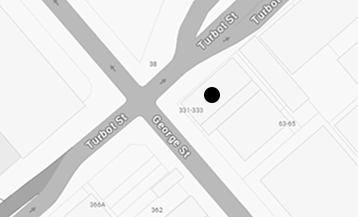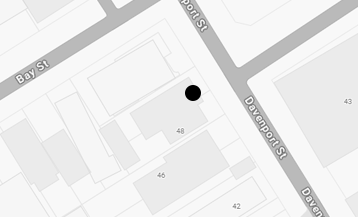The Criminal Code and Other Legislation (Double Jeopardy Exception and Subsequent Appeals) Amendment Act 2023, passed by the Queensland Parliament in March 2023, introduced two key reforms:
- Expanding the Double Jeopardy Exception
- Establishing a Framework for Subsequent Appeals Against Conviction
Let’s examine these changes in detail.
Expanding the Double Jeopardy Exception
The long-standing principle of ‘double jeopardy’ has traditionally prevented a person from being retried for an offence for which they have already been convicted or acquitted. This foundational tenet of criminal law serves to protect individuals from the harassment of repeated trials and the anxiety associated with facing multiple prosecutions for the same alleged crime.
However, the new legislation recognizes that there may be exceptional circumstances where the interests of justice and community safety outweigh the general prohibition on double jeopardy. Accordingly, the Act has expanded the limited exceptions to this rule.
In the past, Queensland’s double jeopardy rule made an exception solely for murder cases. A retrial could be pursued if ‘fresh and compelling evidence’ surfaced that had not been presented in the original trial. The new laws have now broadened this exception to include an additional 10 serious offences:
- Manslaughter
- Attempted murder
- Unlawful striking causing death
- Killing an unborn child
- Rape
- Incest
- Repeated sexual conduct with a child
- Grievous bodily harm
- Torture
- Armed robbery
This expansion brings Queensland’s laws more in line with other Australian jurisdictions, which have already adopted a broader double jeopardy exception for a range of serious crimes.
Importantly, the new legislation also clarifies the definition of ‘fresh evidence’ for the purposes of the double jeopardy exception. Evidence will be considered ‘fresh’ if it was not presented at the original trial and could not have been reasonably obtained by the prosecution through due diligence. This ensures that evidence that could clear someone isn’t thrown out just because an investigator or expert witness didn’t conduct due diligence.
By widening the scope of the double jeopardy exception and providing a clearer definition of ‘fresh evidence’, the Queensland Government aims to enhance the criminal justice system’s ability to respond to possible unjust acquittals, particularly in cases involving serious offences where new evidence emerges that casts significant doubt on the original verdict.
Establishing a Framework for Subsequent Appeals Against Conviction
In addition to the reforms to the double jeopardy rule, the new legislation also introduces a statutory framework to allow convicted persons to make a ‘subsequent appeal’ against their conviction, even after exhausting their original right of appeal.
Previously, the only avenue available to a convicted person who believed they had been wrongfully found guilty was to petition the Governor for a pardon. This process was often lengthy, complex and provided little certainty for applicants.
The new laws now give convicted persons the ability to seek leave from the Court of Appeal to lodge a subsequent appeal on the grounds of either:
- Fresh and Compelling Evidence: If the Court is satisfied that there was a miscarriage of justice, it must allow the appeal and either order a new trial or enter a verdict of acquittal.
- New and Compelling Evidence: If the Court is of the opinion that, on the balance of probabilities, the appellant was not guilty of the offence, it must allow the appeal and enter a verdict of acquittal.
This reform is a significant step forward, as it provides a clear statutory pathway for individuals who believe they have been wrongfully convicted to have their cases reconsidered by the courts. By allowing subsequent appeals on the basis of new evidence that was not available at the original trial, the legislation aims to enhance the integrity of the criminal justice system and reduce the risk of wrongful convictions.
Importantly, the Court of Appeal retains discretion to dismiss a subsequent appeal, even if the grounds appear to be made out, if it considers that no substantial miscarriage of justice has actually occurred. This safeguard ensures that the new appeal process cannot be abused and that the finality of criminal proceedings is appropriately balanced against the need to correct potential errors.
Implications and Impact
The reforms introduced by the Criminal Code and Other Legislation (Double Jeopardy Exception and Subsequent Appeals) Amendment Act 2023 represent a significant strengthening of Queensland’s criminal justice system. By expanding the double jeopardy exception and establishing a framework for subsequent appeals, the legislation aims to enhance public confidence in the fairness and integrity of the state’s criminal proceedings.
The expansion of the double jeopardy exception to include a broader range of serious offences, such as manslaughter, sexual crimes and grievous bodily harm, acknowledges the gravity of these offences and the need to ensure that perpetrators are held accountable, even in cases where new evidence emerges that casts doubt on the original verdict.
Similarly, the introduction of a statutory right of subsequent appeal provides a clear and transparent process for convicted individuals to have their cases reconsidered, reducing the reliance on the discretionary and often opaque process of petitioning the Governor for a pardon. This reform is particularly significant, as it recognizes that the criminal justice system is not infallible and that there must be avenues to correct potential miscarriages of justice.
However, it is important to note that these reforms do not represent a wholesale abandonment of the double jeopardy principle. The legislation maintains the general prohibition on retrial, with the expanded exceptions and subsequent appeal process subject to strict criteria and judicial oversight. This balanced approach seeks to uphold the fundamental rights of the accused while also ensuring that the interests of justice and community safety are appropriately prioritized.
The success of these reforms will ultimately depend on their effective implementation and the approach taken by the courts in applying the new laws. It will be crucial for the judiciary to strike the right balance between finality in criminal proceedings and the need to correct potential errors, particularly in cases where the new evidence is compelling and raises serious doubts about the original verdict.
Conclusion
The Criminal Code and Other Legislation (Double Jeopardy Exception and Subsequent Appeals) Amendment Act 2023 represents a significant step forward in strengthening Queensland’s criminal justice system. By expanding the limited exceptions to the double jeopardy rule and establishing a framework for subsequent appeals against conviction, the legislation aims to enhance the system’s ability to respond to possible unjust acquittals and wrongful convictions.
These reforms, which bring Queensland’s laws more in line with other Australian jurisdictions, demonstrate the government’s commitment to ensuring that the criminal justice system remains contemporary, efficient and delivers fair and just outcomes for the community. As an experienced criminal lawyer, I believe these changes have the potential to significantly improve the integrity and public confidence in Queensland’s criminal proceedings.
However, the true impact of these reforms will depend on their effective implementation and the approach taken by the courts in applying the new laws. It will be crucial to strike the right balance between the finality of criminal proceedings and the need to correct potential errors, particularly in cases where new evidence emerges that raises serious doubts about the original verdict.
Overall, the Criminal Code and Other Legislation (Double Jeopardy Exception and Subsequent Appeals) Amendment Act 2023 represents a positive step forward for Queensland’s criminal justice system, and I am hopeful that it will contribute to a more fair, transparent and accountable system for all Queenslanders.
If you think you might be in double jeopardy or if you are wrongfully convicted, don’t hesitate to contact Hannay Criminal Defence immediately. With our knowledgeable and experienced team of criminal defence lawyers, we will ensure that your rights are protected.








